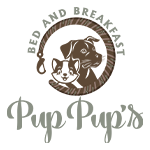We must explain to you how all seds this mistakens idea off denouncing pleasures and praising pain was born and I will give you a completed accounts off the system and expound the actually teaching.
Business
Alcohol and Anxiety: Panic Attacks After Drinking

If you can’t cut down on drinking despite recurring panic attacks or anxiety hangovers, then it would be a good idea to look into getting help. Maybe it’s just a simple feeling of “something’s not right” or you’re just extra sensitive to everything going on around you? Or perhaps you’re actually paranoid or flat-out scared, and can’t explain why.

Alcohol can decrease your blood sugar levels
You get this tachyphylaxis, so you have to drink a little bit more to get the same impact. So the normal progression is to move from light to moderate to heavy. And you’re right, it’s difficult to predict who, but that risk of becoming a heavy drinker and all of the other health outcomes was not what we looked at. Getting proper rest can ease panic-inducing symptoms and prevent a panic attack.

What is anxiety?
- It is often linked to the brain’s response to the sudden absence of alcohol, causing mood swings and emotional instability.
- Suppose you drink regularly and reach a point where panic attacks have become routine.
- Social withdrawal is not uncommon, as people may isolate themselves to manage their symptoms.
- Health issues such as kidney disease or liver disease can make you more prone to adverse effects of alcohol and more severe alcohol withdrawal symptoms.
- About 30% of people who experience substance use disorder also experience another mental health condition.
- The exposure that we looked at was up to moderate drinking as defined by the DGA.
As the initial calm feeling fades you can feel anxiety as the effects of the alcohol wear off. Spending time in nature can promote feelings of calm and well-being. Stretch tall and imagine yourself firmly rooted to the ground like a tree. Before we proceed, let’s establish what panic attacks even are and how they are related to anxiety. Low blood sugar can trigger anxiety-like symptoms, leaving you feeling jittery and on edge.
How long after quitting alcohol do feelings of anxiety go away?
If you automatically reach for alcohol as soon as you notice the impending symptoms of a panic attack, you may believe that this substance calms you down and prevents you from spiralling. What results is a vicious cycle of spiraling depression, increased anxiety levels, and a desperate attempt to feel better by drinking more, which ultimately makes the situation worse. Having anxiety does not guarantee a panic attack will happen, nor does having a panic attack mean there is an anxiety disorder present. At this type of clinic you will undergo detox (if needed) and engage with a therapist who will listen to you and help you develop the skills you need to stay sober. An intensive treatment programme will also include educational presentations delivered by therapists, access to a fitness programme, and complementary therapies such as equine therapy.
As you go through these physical sensations, your brain will think that you alcohol and anxiety are panicked and might trick itself into having an actual panic attack. Technically they’re drinking more alcohol to get their brain to block ‘glutamate’. And one of the things that’s challenging is this concept of responsible drinking, which is a catchphrase that’s used all the time in advertising around the alcohol products. And the issue is there’s just this fine line, right, between I’ve imbibed enough where I’m safe to drive home and I over-imbibed.
- It’s no secret that alcohol has a profound impact on the brain—even a casual drinker can experience a mood shift after a beer or two.
- Psychiatrists are doctors who have specialized training in diagnosing and treating complex mental health conditions through medication management.
- As individuals continue to use alcohol to cope with anxiety, they may develop tolerance.
One of those other questions that I hear from patients what is alcoholism occasionally is the type of alcohol – that I’m a wine drinker, just for example, I don’t use a higher-octane alcohol. And again, I don’t know if that’s something you hear or something the studies have spoken to. The exposure that we looked at was up to moderate drinking as defined by the DGA. And I think you’ve touched on this, but do you get a sense of what the average patient’s beliefs are about the impacts of alcohol on health? Safe at a certain level, not safe at any level, maybe that’s what you’re saying is in flux. What I hear from patients right now is a lot of confusion, especially with these new recommendations that are coming out.
Getting Treatment for Panic Attacks and Alcohol Use Disorder in Manatee County, FL

Some healthy adults can become sick from consuming even a small amount of alcohol. Knowing your limits is a key factor in preventing hangovers and symptoms of anxiety during a hangover. Alcohol withdrawal symptoms occur as the body adjusts to a sudden decline in the chemicals that are components of alcohol. Additionally, as alcohol is broken down and removed from the body, certain chemical toxins produce inflammation and oxidative stress. A combination of the toxic effects of alcohol and the withdrawal from the effects of alcohol causes a hangover.

Post Comment